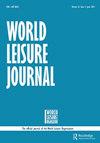利益风险评估:平衡休闲的利益和风险
IF 2
Q3 HOSPITALITY, LEISURE, SPORT & TOURISM
引用次数: 1
摘要
摘要近年来,娱乐、体育甚至儿童游戏都受到了安全问题的影响,并在某些方面发生了变化。尽管安全是一个理想的目标,但它有时可能会影响个人自由以及这些活动对健康和福祉的贡献,因此需要在安全和其他寻求的目标之间取得平衡。一个困难是,安全问题通常通过进行风险评估来解决,但就常用的方法而言,活动的好处不是这个过程的一部分,可能被低估或遗忘。一个解决方案是超越传统的风险评估,采用包括效益考虑在内的程序。然而,可以公平地说,这是一个缓慢的过程,部分原因是它看起来新颖且具有挑战性,但本文认为,收益风险评估不是一种新发明的程序,而是一种在历史上司空见惯的程序,只有从狭隘的角度来看,它才能被认为是新颖的。文章接着讨论了收益风险过程的各个方面,包括其历史根源、研究见解以及对休闲决策的启示。本文章由计算机程序翻译,如有差异,请以英文原文为准。
Benefit-risk assessment: balancing the benefits and risks of leisure
ABSTRACT In recent years recreation, sport and even children’s play have been affected and, in some ways, transformed by safety concerns. Although safety is a desirable goal, it may at times impinge on personal freedoms and the contribution of these activities to health and wellbeing, and it follows that a balance needs to be struck between safety and these other sought-for goals. A difficulty has been that safety concerns are usually addressed by carrying out a risk assessment, but, so far as the commonly used methods are concerned, the benefits of an activity are not part of this process and may be undervalued or forgotten. One solution has been to go beyond conventional risk assessment to a procedure that includes consideration of benefits. However, it is fair to say that this has been a slow process, partly because it appears novel and challenging, but this essay posits that benefit-risk assessment is not a newly invented procedure but one that has been commonplace throughout history, and that only from a narrow perspective can it be considered novel. The essay goes on to discuss aspects of the benefit-risk process including its historical roots, research insights, and implications for leisure time decision-making.
求助全文
通过发布文献求助,成功后即可免费获取论文全文。
去求助
来源期刊

World Leisure Journal
HOSPITALITY, LEISURE, SPORT & TOURISM-
CiteScore
3.10
自引率
6.20%
发文量
34
期刊介绍:
As the official journal of the World Leisure Organisation, the purpose of the World Leisure Journal is to stimulate and communicate research, theory, and critical thought in all areas that address leisure, including play, recreation, the arts and culture, sport, festivals, events and celebrations, health and fitness, and travel and tourism. Empirical and theoretical manuscripts, as well as position papers, review articles, and critical essays are published in the World Leisure Journal . The World Leisure Journal is international in scope, and encourages submissions from authors from all areas of the world. Comparative cross-national and cross-cultural research reports are especially welcome. For empirical papers, all types of research methods are appropriate and the subject matter in papers may be addressed from perspectives derived from the social, behavioural, and biological sciences, education, and the humanities. Both pure and applied research reports are appropriate for publication in the World Leisure Journal . In addition to original research reports and review essays, book reviews, research notes, comments, and methodological contributions are appropriate for publication in the World Leisure Journal .
 求助内容:
求助内容: 应助结果提醒方式:
应助结果提醒方式:


